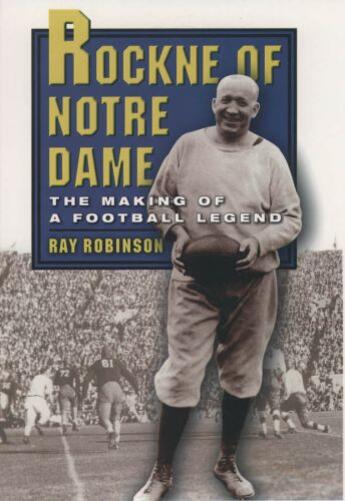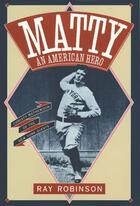-
Nombre de pages : (-)
-
Collection :
(-)
-
Genre :
(-)
-
Thème :
Non attribué
-
Prix littéraire(s) :
(-)
Résumé:
To say that Knute Rockne was the best coach who ever lived is to understate his importance to football. True, in a mere twelve years, his "Fighting Irish" won 105 games, including five astonishing undefeated seasons. But Rockne was more than the sum of his victories--he was an icon, a legend on... Voir plus
To say that Knute Rockne was the best coach who ever lived is to understate his importance to football. True, in a mere twelve years, his "Fighting Irish" won 105 games, including five astonishing undefeated seasons. But Rockne was more than the sum of his victories--he was an icon, a legend on a par with Babe Ruth, a sports giant who, more than anyone, made football an American obsession.
In Rockne of Notre Dame, Ray Robinson delivers a memorable portrait of one of the great American sports figures. The book gives us colorful descriptions of such Rockne teams as the undefeated 1924 eleven led by the illustrious Four Horsemen, and the 1930 squad, Rockne's last and greatest. Here too are vivid accounts of some of the great games in Notre Dame history, including epic battles with arch rivals Army, Nebraska, Carnegie Tech, and USC. But the heart of the book is Rockne himself. A renowned motivator whose "Win one for the Gipper" is the most famous locker-room speech ever, Rockne was also football's most brilliant innovator, a pioneer of the forward pass, a master of the psychological ploy, and an early advocate of conditioning. Though Robinson doesn't pull punches, Rockne emerges as an exemplary and complex figure, a fierce competitor who was generous in victory and defeat, an inspiring father figure to his players, and a man so revered nationwide that when he died in a plane crash in 1931, at the height of his career, he was mourned by the entire country.
A feast for all Notre Dame grads and for subway alumni everywhere, this engaging biography is the finest portrait we have of the man who changed football in America.
Donner votre avis









